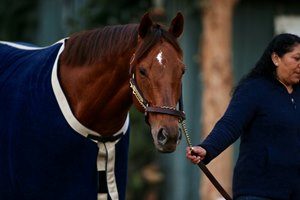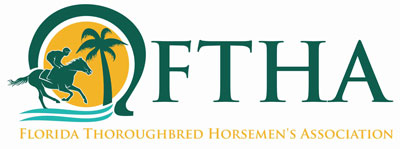Florida Becomes Global Horse Racing Epicenter This Weekend

Since the first horses were domesticated for riding, they became one of mankind’s most enduring symbol of power and supremacy. In his famous Black Stallion books, author Walter Farley details an ancient horse race taking place deep in the Sahara Desert, where chieftains gathered to test their best horses against one another for winner-take-all ownership.
That history took a modern turn with the broad-scale introduction of the Dubai World Cup in 1996—which offered a then-unheard of purse of $4 million. The world watched as an American sensation named Cigar took the race to seal and continue his undefeated dominance now acknowledged by that win as worldwide.
For years, the Dubai World Cup remained the world’s richest race, luring the richest and most prestigious horses and their entourages from the world’s most powerful stables that were—in reality—seeking not only the eye-popping record purse of $12 million, but history’s age-old promise of total domination—fought and taken in battle against a cadre of worthy adversaries.
So great had become the allure of owning and competing the world’s greatest racehorse, that Gulfstream Park patriarch Frank Stronach upped the ante just a few years ago with an alternative purse structure that, with the addition of a new turf race debut as part of the package, now totals $16 million to create the Pegasus World Cup. The race is named for the iconic giant horse and dragon statue that adorns Gulfstream’s northwest apron.
(For the first-timers, AmericasBestRacing.net provides a wealth of Pegasus lore, information on its mighty horses, and statistics here.)
While the wealthy owners of this weekend’s Pegasus Cup entrants won’t be competing for equine pink slips like chieftains did thousands of years ago, the challenge among “tribal” camps remains so alluring that, the race has drawn a global slate of competitors–among them the undefeated Mexican Triple Crown winner Kukulkan.
As beautiful people, their vast money and other well-heeled tourists and fans pack Gulfstream Park and surrounding South Florida cities and destinations for what is now the world’s richest race, just days before on January 24, legislators will review the revenue generation capacity of the State’s gambling industry.
Will the fact that Florida hosts this global sporting and tourism event and its economic impact be on lawmakers’ agenda? Will they discuss the far-reaching economic impact of Thoroughbred horse racing at all?
Indeed, the degree of wealth required to keep one single Pegasus contender in training and enter the race makes its financial mark on Florida’s economy in a substantial way.
The Florida Horsemen’s Benevolent and Protective Association represents all Thoroughbred owners and trainers who live, work and compete in the State of Florida—even the Pegasus connections. But whether or not they have a Pegasus runner in their barn, the costs of training one racehorse don’t vary much.
On an aggregate, these thousands of hardworking men and women, and their many employees who care for their valuable horses provide the backbone of Florida’s horse racing business that converges each day to discover and launch the next Pegasus contender.
Everyday horsemen who keep Florida’s economy humming during the rest of the year will be watching and cheering right along with all the “ballers” and big “shot-callers” descending on South Florida this weekend.



